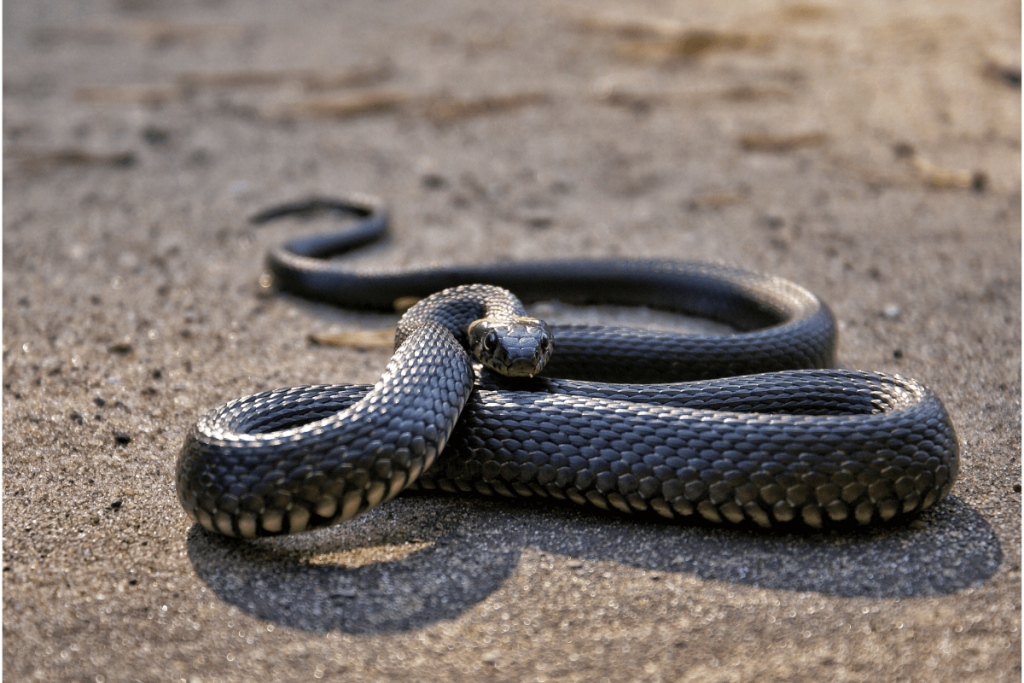With the temperature starting to rise, so does the activity of snakes. Living in the Gawler area means you must be vigilant about the risk of your pet being bitten by a snake.
While encounters with snakes can be frightening and potentially life-threatening for your pets, the Cameron Veterinary Services team is trained to deal with snake bite emergencies and is here to help.
In this post, we’ll discuss the signs of snakebite and the immediate steps you should take if you suspect your cat, dog or horse has been bitten by a snake.
Signs of snake bite
Now that we’re well into spring and the weather is warming up, snakes are becoming more active. Dogs and cats are most often bitten around the head and limbs, while horses are typically bitten on the face or muzzle. Usually, the closer the bite is to the heart, the quicker the venom will be absorbed into the animal’s system and distributed around the body.
However, knowing the signs of a snake bite is essential. While you may witness the snakebite, bites often happen when you’re not with your pet, and the first sign is that your pet appears unwell.
Symptoms to look out for include:
- Sudden weakness followed by collapse
- Trembling, shaking or twitching of the muscles and difficulty blinking
- Drooling
- Vomiting
- Loss of bladder and bowel control
- Dilated pupils
- Difficulty breathing
- Paralysis
- Blood in urine
- Horses can also have bleeding from the mouth or nose, colic signs and a wobbly gait
Sometimes, you may notice fang marks or swelling around the bite area. If you suspect a snake bite, time is of the essence.
Immediate action is crucial
If you see or suspect a snake has bitten your pet, it’s crucial to act quickly and calmly. The sooner they are treated, the better their chances are of survival.
For horses, it’s important that you call your vet immediately, as the sooner they are treated, the better the outcome.
For pet dogs and cats, follow these four steps:
1. Restrict movement
Immobilise your dog or cat and keep them as still and quiet as possible to slow down the spread of venom through their bloodstream.
2. Identify the snake if possible
If it’s safe, try to identify the snake without putting yourself or your pet at risk. Knowing the species can aid in treatment. A photo of the snake or even a thorough description can be of great assistance.
3. Do not suck the venom
Contrary to popular belief, attempting to suck out the venom with your mouth is not recommended and can worsen the situation.
4. Apply a firm bandage to the bite site
If you have a bandage to hand, quickly apply a firm bandage above, below, and over the site of the bite, as this helps to stop the venom from spreading to the heart. Avoid using a tourniquet or cutting the bite area, as this can lead to more harm than good.
Don’t waste too much time bandaging your pet – the most important thing to do is to head to your nearest vet clinic as soon as possible for treatment – and call ahead so they are prepared.
Veterinary treatment for snake bite
The Cameron Veterinary Services team is trained in handling snake bites and can help you in an emergency.
It’s important to seek veterinary attention if you think your pet has been bitten. Sometimes animals can return back to normal after initially collapsing from a snake bite. However, this recovery is only temporary, and they will then become very unwell quite quickly.
If you suspect a snake has bitten your pet, one of our veterinarians will perform a coagulation test to confirm if a bite has occurred. This test helps determine the severity of envenomation and will guide the treatment plan for your pet. If the test confirms a snake bite, your pet will require antivenom, pain relief, and supportive care.
If you ever suspect your pet has been bitten by a snake, call us on 08 8318 1801 for assistance.



